Ageing Vision
What is Ageing Vision?
While many older people maintain good eyesight well into their 80s and beyond, others may have their vision affected by some type of visual impairment. As part of the normal aging process some changes occur that can weaken your eyes.
Common eye complaints:
- Presbyopia – the normal loss of ability to see close objects or small print with age
- Floaters – tiny spots or cobweb like specks float across the field of vision
- Tearing – excess tears, caused by an increased sensitivity to light, wind or temperature changes
- Dry eyes – the tear glands do not make enough tears or make poor quality tears
Common eye diseases and disorders among older adults:
Cataracts are the clouding of lens lens in the eye, which can block light from easily passing through the lens. As Cataracts advance they usually cause a decrease in eyesight. Today surgery can easily remove cataracts.
Glaucoma: results from an increase in pressure inside the eye, leading gradually to vision loss and eventually blindness. Treatment for glaucoma include prescription eye drops, oral medications or surgery.
Retinal disorders include age-related macular degeneration diabetic retinopathy and retinal detachment. Some other common eye conditions that may affect older people include conjunctivitis, corneal diseases, eyelid problems and temporal arteritis.
What can you do to prevent and treat eye problems?
- Have regular eye examinations to check for diseases that could cause eye problems if not treated.
- Annual examinations may be required if you have diabetes or a family history of eyedisease.
- See us at once if you have any loss of eyesight, eye pain, fluids or discharge comingfrom the eye, double vision, redness or swelling of your eye or eyelid.
- Brighter lights at home may help you see better andprevent accidents caused by poorer eyesight.
